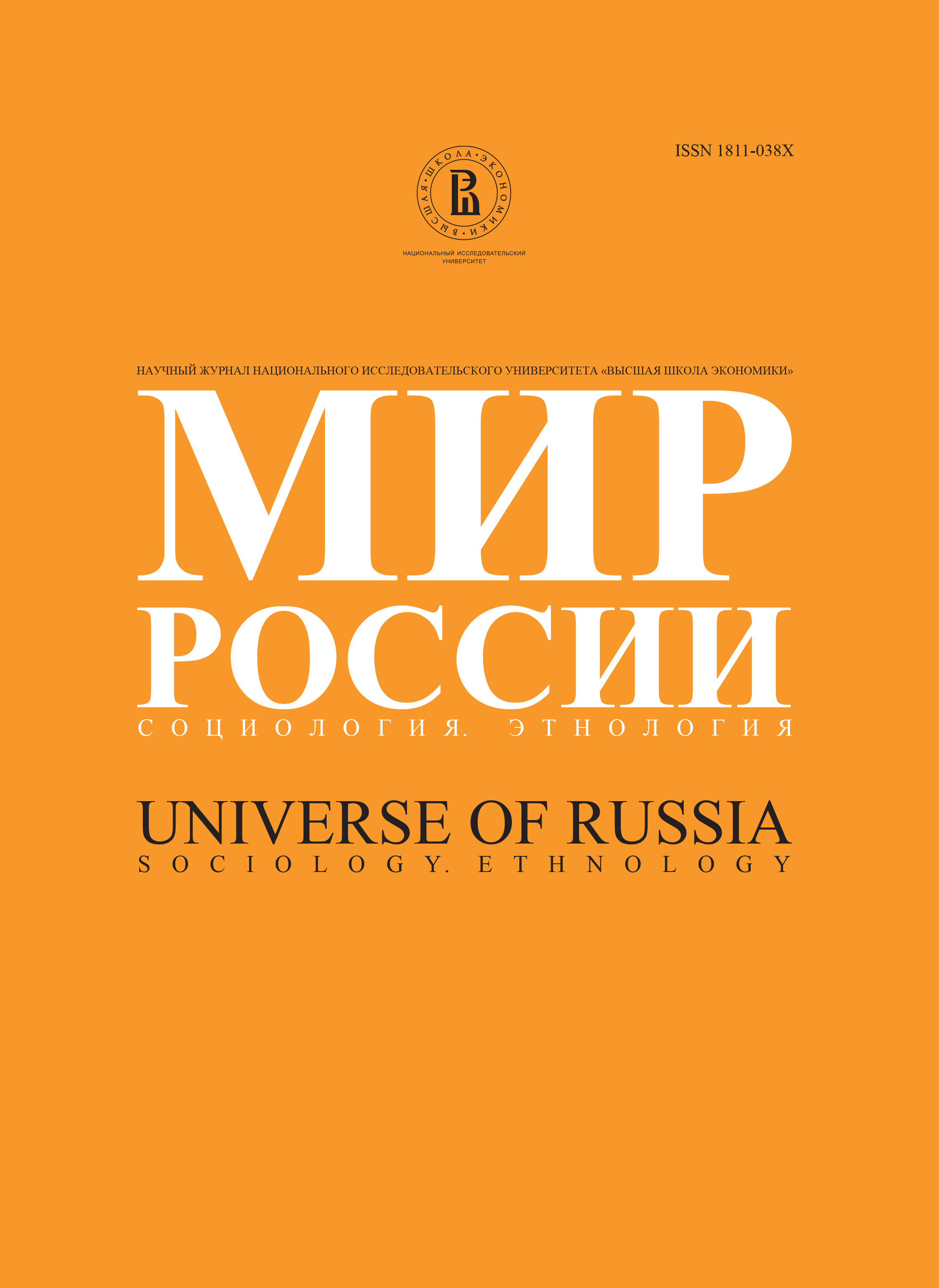Occupational Status in Contemporary Russia
Abstract
The article presents a new scale of occupational status in Russia, which has been constructed using the data on assortative mating between representatives of different occupational groups. The first part of the article is a review of approaches to occupational scales. Following this the author describes prestige scales created in Soviet sociology. The second part deals with the results of empirical analysis of the ISSP survey data. The statistical analysis is based on the Goodman’s RC2 log-multiplicative model. The resulting status scale shows high degree of consistency with similar scales, constructed for other (mainly European) societies. Non-manual occupations rank higher than manual, while the occupations that require mixed non-manual and manual activities are in the middle of the scale. Among non-manual occupations professionals rank higher than managers. In the last part of the article the status scale is compared with other indicators of the individual’s position in social hierarchy. As in other countries, social status in Russia is better correlated with education than with personal income. The status scale is also well correlated with subjective social class, which proves its validity.
E-mail: bessudnov@googlemail.com
Key words: social status, prestige scale, profession, sociological surveys, scaling






